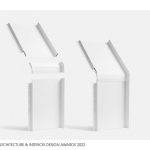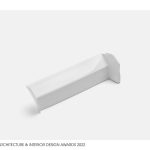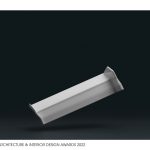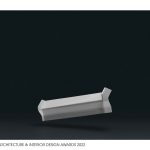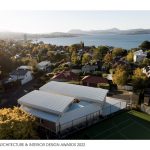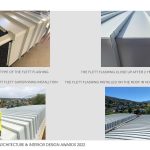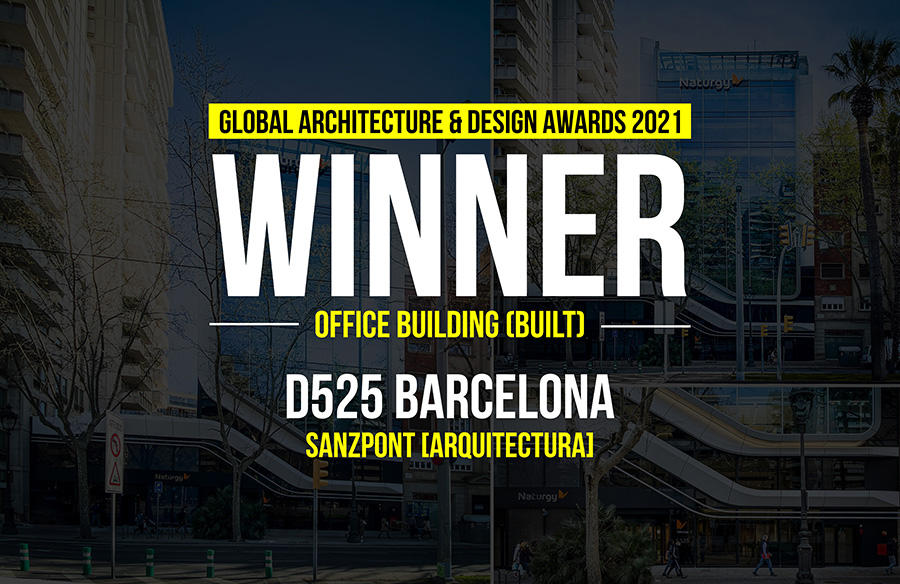The Flett Flashing is the world’s first 3D printed roof flashing.
3D printing allows the flashing to perfectly match any specified roofing profile and colour and permits junctions between roofing sheets of different pitches to be installed without difficulty.
This invention makes architectural cladding quicker, easier and cheaper to install.
Global Design & Architecture Design Awards 2022
First Award | Architectural Innovation of the year (Built)

| Project Details | |
| Project Name: | The Flett Flashing |
| Project Category: | C3: Technological Innovation of the year |
| Studio Name: | Scott Flett Architecture Workshop |
| Design Team: | Scott Flett |
| Year: | 2022 |
| Location: | Hobart, Tasmania |
| Photography Credits: | Mark Lobo, Chris Shurman, Scott Flett |
| Other Credits: | Designed, invented, patented, manufactured and installed by Scott Flett. |
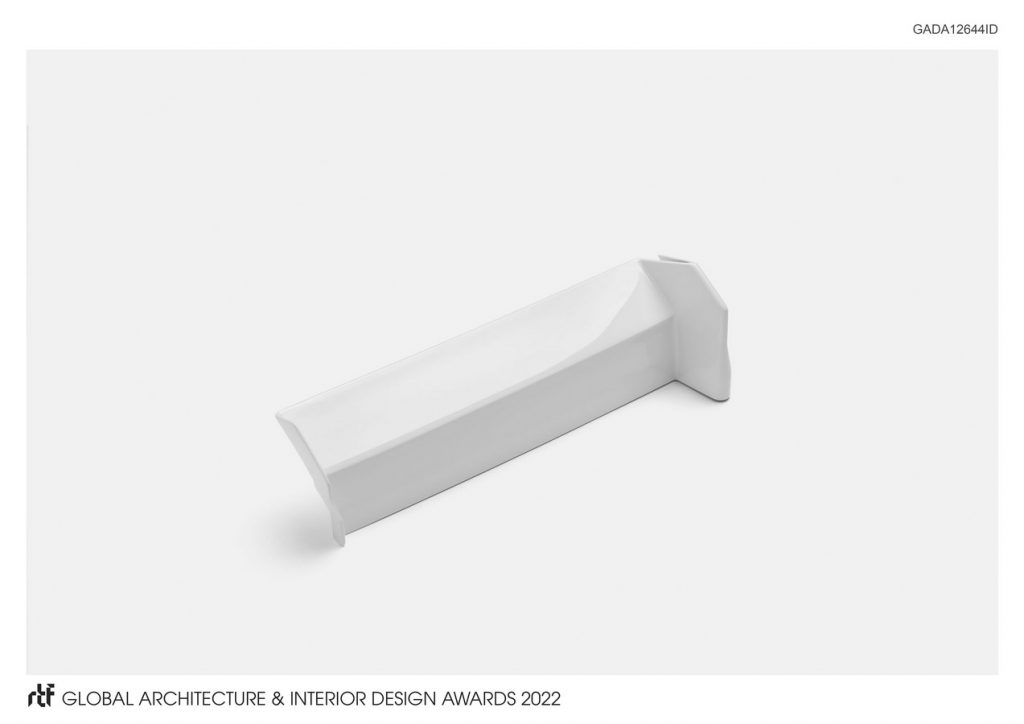
©Mark Lobo, Chris Shurman, Scott Flett
Design Challenge
Traditional Metal Roofing or Architectural Cladding continues to be an enduring method of cladding throughout the world. One of the design challenges of using architectural cladding is how to resolve junctions. The issue is that each standing seam panel is asymmetrical and must be installed in sequence. There is currently no product on the market for architectural cladding that facilitates a quick change in direction. This has been done by hand for hundreds of years. The design challenge is to create a durable and aesthetically pleasing flashing suitable for standing seam cladding that is quick and easy to install.
Design Solution
The Flett flashing is produced with 3d printing or additive forming.
I designed a mold that under-laps the sectional profile of standing seam cladding sheet, permits any change in direction and then overlaps the sectional profile of an subsequent sheet.
I developed an additive manufacturing process that consistently produces a robust product that is thermally stable, UV stable, nontoxic and color matched to the roofing sheet.
I developed an installation method that allows the sheets to be installed in sequence and quickly. The installed product looks clean, simple and aesthetically consistent.
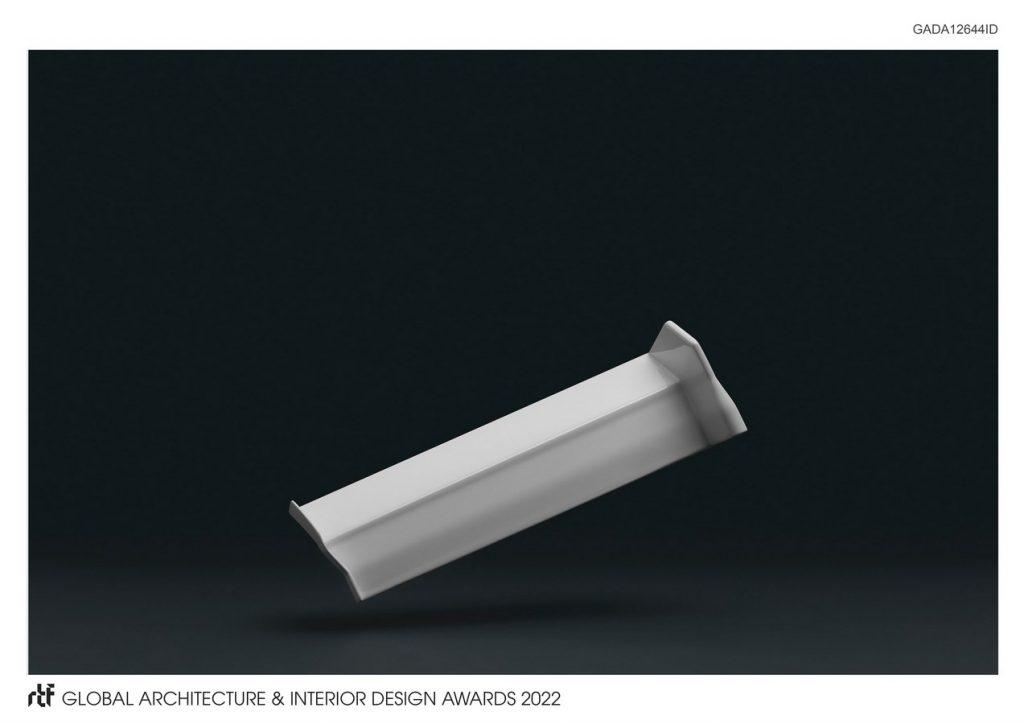
©Mark Lobo, Chris Shurman, Scott Flett
Design Impact
I hope to inspire the world to improve roof design.
I am the first architect in the world to have designed a 3d printed roof flashing. I am also the first builder in the world to have manufactured and installed a 3d printed roof flashing.
I have shown that architects can have more design options and builders have more solutions. I have demonstrated that 3d printing belongs in the collective site toolbox.
Australia, and the world, has a problem with leaking roofs. Difficult junctions and poor roof design are the leading causes of roof leaks.
My design addresses this problem.
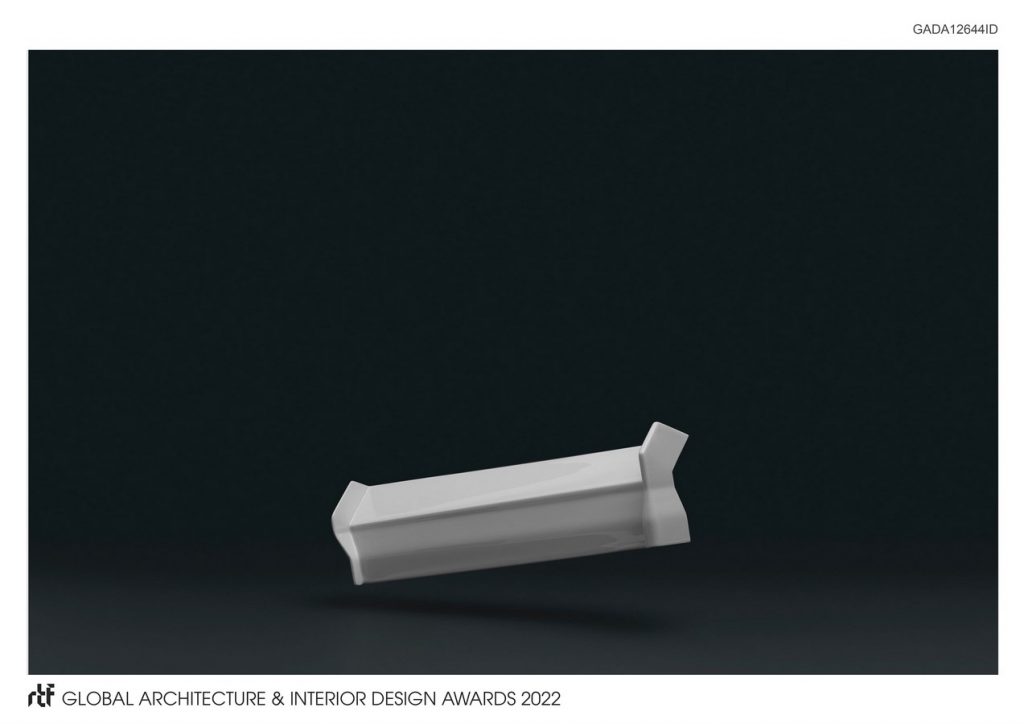
©Mark Lobo, Chris Shurman, Scott Flett
The Flett Flashing aspires to catalyse a global rethink of roof design.
The world has only modestly changed the way it designs roofs since the invention of corrugated iron in 1829.
Roofs are at the very essence of shelter. Our shelter, and built environment as a whole, needs to respond to its environment.
This is particularly applicable in Australia, where the homes are still often styled on European and American homes. Australia deserves to have a roof design that suits its conditions.
The Flett Flashing is this Australian design. It not only gives greater creative options to architects and better solutions for builders but it also responds to our unique environmental challenges, and way of life.
Everyone knows someone whose roof has leaked. It is one of the most common building defects and even minor damage causes an immense financial burden. The Flett Flashing aims to prevent this problem.
The Flett Flashing also aims to reduce the risk of leaf litter build up, a risk factor for property damage or loss during a bushfire or ember attack. The Flett Flashing has been designed with Australia in mind – responding to our unique challenges in fires and heavy rain. While designed with a local application, the Flett Flashing can have a global impact. The Flett Flashing can be tailored to suit multiple profiles, responding to design requirements of its local environment, enabling application to a wide range of locations.
- ©Mark Lobo, Chris Shurman, Scott Flett
- ©Mark Lobo, Chris Shurman, Scott Flett
- ©Mark Lobo, Chris Shurman, Scott Flett
